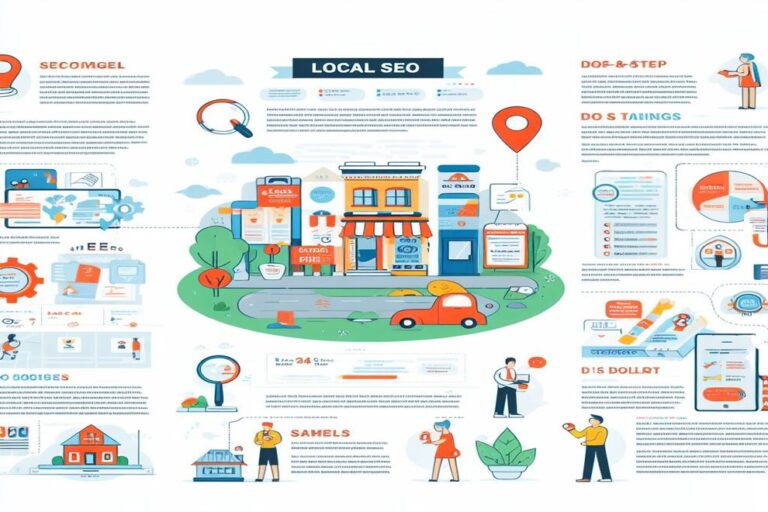Social Media Marketing: Strategies for Small Business Success

In the digital age, social media has become an indispensable tool for small businesses looking to grow and thrive. With the right strategies, it can help you build brand awareness, engage with your audience, and drive sales. In this comprehensive guide, we will explore the world of social media marketing and provide you with effective strategies to achieve success for your small business.
The Importance of Social Media Marketing
1. Increased Brand Visibility
Social media platforms provide an opportunity to get your brand in front of a vast and diverse audience. With billions of active users, these platforms offer unparalleled reach for your small business.
2. Cost-Effective Marketing
Compared to traditional advertising channels, social media marketing is often more budget-friendly. You can reach a large audience with a minimal investment, making it an attractive option for small businesses with limited resources.
3. Targeted Advertising
Social media platforms offer powerful targeting options. You can tailor your ads to reach specific demographics, interests, and behaviors. This precision ensures that your marketing efforts reach the most relevant potential customers.
4. Enhanced Customer Engagement
Social media is a two-way street. It allows you to interact with your audience in real time, fostering relationships, addressing concerns, and gathering feedback. This engagement can lead to greater customer loyalty and advocacy.
5. Data and Analytics
Social media platforms provide a wealth of data and analytics to help you understand the performance of your campaigns. This data-driven approach allows for continuous improvement and optimization of your strategies.
Effective Social Media Marketing Strategies
1. Define Your Goals
Before diving into social media marketing, define your goals. What do you want to achieve? Whether it’s increasing brand awareness, generating leads, driving website traffic, or boosting sales, setting clear objectives will guide your strategy.
2. Know Your Audience
Understanding your target audience is essential. Research your audience’s demographics, interests, behaviors, and pain points. This knowledge will help you tailor your content and messaging to resonate with them.
3. Choose the Right Platforms
Not all social media platforms are created equal. Different platforms cater to different audiences and niches. Identify the platforms where your target audience is most active and focus your efforts there. Popular choices include Facebook, Instagram, Twitter, LinkedIn, and Pinterest.
4. Craft High-Quality Content
Content is the cornerstone of social media marketing. Create valuable, engaging, and relevant content that aligns with your brand and resonates with your audience. This can include blog posts, videos, infographics, and more.
5. Develop a Content Calendar
Consistency is key in social media marketing. Create a content calendar to plan your posts and ensure a steady stream of content. This calendar should outline the types of content, posting schedule, and key dates.
6. Utilize Visual Content
Visual content, such as images and videos, tends to perform well on social media. Incorporate eye-catching visuals that tell your brand’s story and capture your audience’s attention.
7. Engage with Your Audience
Actively engage with your followers. Respond to comments, messages, and mentions. Foster conversations and build relationships with your audience. Show that you value their feedback and input.
8. Run Contests and Giveaways
Contests and giveaways can be effective in increasing engagement and expanding your reach. Encourage users to participate by offering appealing prizes in exchange for likes, shares, and comments.
9. Leverage User-Generated Content
Encourage your customers to create and share content related to your products or services. User-generated content not only showcases the value of your offerings but also builds trust and social proof.
10. Invest in Paid Advertising
While organic growth is valuable, consider investing in paid advertising to amplify your reach. Social media platforms offer various advertising options, including sponsored posts, carousel ads, and retargeting.
11. Monitor and Analyze
Regularly analyze the performance of your social media campaigns. Pay attention to key metrics like engagement, reach, click-through rates, and conversions. Use these insights to refine your strategies.
12. Experiment and Adapt
The social media landscape is ever-evolving. Don’t be afraid to experiment with new content types, strategies, and platforms. Stay flexible and adapt to changes in the digital landscape.
13. Collaborate and Partner
Consider collaborating with influencers or complementary businesses. Partnerships can expand your reach and expose your brand to new audiences.
Real-Life Examples of Successful Social Media Marketing
To illustrate the effectiveness of social media marketing, let’s examine a couple of real-life examples:
1. Airbnb
Airbnb utilizes Instagram to showcase stunning photos of their unique accommodations around the world. Their content promotes not just the places but the experiences travelers can have when booking with Airbnb. Their Instagram strategy has helped build a strong brand identity and attract users seeking authentic travel experiences.
2. Wendy’s
Wendy’s is known for its witty and humorous Twitter presence. They engage with their audience through clever responses, memes, and playful banter. This approach has garnered a large following, increased brand visibility, and made Wendy’s a popular and relatable brand on social media.
Measuring the Success of Social Media Marketing
Measuring the success of your social media marketing efforts is essential to evaluate their impact:
1. Key Performance Indicators (KPIs)
Identify key performance indicators that align with your goals. These could include metrics like likes, shares, comments, click-through rates, conversion rates, and revenue generated from social media.
2. Social Media Analytics
Use the analytics tools provided by social media platforms to track the performance of your content and campaigns. These analytics offer insights into engagement, reach, and user demographics.
3. Conversion Tracking
Set up conversion tracking on your website to measure the actions users take after clicking on your social media posts. This could include sign-ups, purchases, or other desired actions.
4. Customer Feedback
Gather feedback from your audience through surveys and direct communication. Understand their preferences, needs, and expectations to fine-tune your social media strategies.
5. Competitive Analysis
Keep an eye on your competitors’ social media presence. Analyze their strategies and compare your performance to theirs. This can help you identify areas for improvement and innovation.
Conclusion
Social media marketing is a powerful tool for small businesses to reach and engage with their target audience. It offers numerous benefits, including increased brand visibility, cost-effective advertising, and the ability to build strong customer relationships. By implementing effective strategies, producing high-quality content, and staying adaptable, you can harness the potential of social media to grow your small business. Remember that success in social media marketing is an ongoing process, and continual monitoring, analysis, and adaptation are key to achieving your goals. Make social media marketing a core component of your online strategy and watch your small business flourish in the digital realm.





